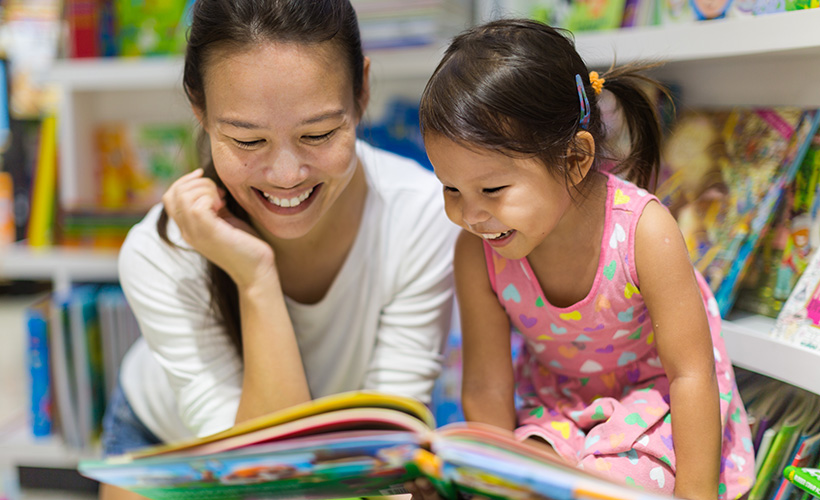Children’s day is held on the first Sunday in March every year, and what a perfect opportunity to spend some time celebrating children around the country! It’s always important to spend time with our kids, support and nurture your children and those in the community as well, however Children’s Day really highlights this! In particular, there are some specific themes that are emphasised during Children’s Day that are important to focus on. These primary messages are: Giving time, Praise and Encouragement, Listening and Talking, Love and Affection, New Experiences. However, you may be thinking, what do these topics mean, how can we address them, embrace them, and support them when interacting with children? Luckily, we’ve included some tips below for how we can promote these themes during Children’s Day!
Giving time
The theme, Giving Time, is a rather all-encompassing idea, focused on simply being more present for children. By investing more time in children, you are also investing more time in general in all of the following themes. Spending more time together allows more opportunity to praise children, support them and nurture them, and help them chase their goals and dreams!
How can we give more time and what does giving more time entail?
It can sometimes appear complicated to give time, as many parents, and people in general have quite busy lives. So, sparing extra time may seem out of reach. However, it doesn’t have to take a drastic shift in work schedule, taking free days, or having someone cover your responsibilities to give more time. Think more about taking time to do activities together! This doesn’t always have to be novel or exciting activities. Sometimes the more routine or mundane activities, which may not always seem like the most thrilling things, can still be things that really benefit children and that they look back at fondly. It is often within more simple aspects that more time can be given; for example, making sure to make the most of the time that you do have and be more present in times that you are actually together. Even involving kids in different tasks, for example cooking or folding the laundry, and focusing on them rather than being distracted, can have a huge impact into making them feel valued, supported, and loved.
Praise and Encouragement
Along the lines of helping kids feel valued and supported, the next theme, “Praise and Encouragement”, can have a positive impact on a child’s development. It is important to remember to reward children with praise as this can help build a positive environment around them and help build their self-confidence and belief! Further, making sure to encourage kids can also have positive effects on their level of perseverance and self-esteem. It is also important to take into account the manner in which you praise or encourage children, as this can also have an impact on how they process or internalise the praise.
When giving praise and encouraging children it’s important to keep in mind the following: Be sincere and specific and focus on process or intention and progress rather than the end result.
It is important to be sincere when praising your child because, if they sense insincerity it can really negatively affect their self-esteem; it can feel like you are being dishonest with them and make them question whether you are really proud of them in the future or in general.
Being specific with praise also provides another level of benefit for children. For example, saying “you’re so good” has much a different connotation and can be internalised in a much different manner than “you’re so good for helping with the dishes.” The second example provides a much more specific reason as to why they’re “good” and this can have a greater effect on self-esteem when compared to less specific praise, which could also seem less sincere over time.
Focusing on the process or intention behind a behaviour that you are praising is also an important aspect to keep in mind when encouraging children. In the case that you only focus on the end result, it may be more difficult to praise kids when the end result isn’t 100% perfect. This could also hurt their self-esteem in the end. However, by focusing on their intention and process, you are also praising their learning process and helping them understand both that this behaviour is something you encourage as well as it is okay to not have everything totally perfect every time. A key example of this is supporting and praising effort put in by children. If you see they tried hard to do something, this is a significant thing that you can praise! Whether or not the outcome was perfect, by praising the effort you help them learn perseverance as well.
Listening and Talking
Giving praise and encouragement certainly falls partially under the theme of listening and talking to children, however, there are many other things that also make up this category and make it important for supporting and developing children.
Listening is more than just being around while a child is speaking, hearing what they say and responding, however, it can also encompass being “present” while your child is talking. By being present and listening actively, you are also helping support children’s self-worth. Making it clear that you are listening deeply and taking time to think about what they are saying communicates to children that what they are saying is important, their perspective is valuable, and in the end that they themselves are valuable and deserve the time you spend to hear them out.
When listening, try not to judge what they are saying, as this may make them less comfortable in telling things if they feel like they are going to be judged for what they say.
By listening in a non-judgemental manner, you help nurture a relationship where children are more comfortable with sharing, and are quicker to be more open and feel as though their input and point of view is valued.
Going hand in hand with listening, talking to your children, and doing so in an interested manner, can really positively affect their personal development. Talking actively with children can help them learn more and boost their intellectual curiosity. For example, following up on their questions and discussing their interests more deeply can certainly be a significant educational experience for them. Further, taking the time to have thoughtful conversation and discussion with children also, similarly to listening, helps let them know that what they have to say is important!
Love and Affection
Showing love and affection is certainly one of the most effective ways to support and help nurture children! Why not take Children’s Day as an extra opportunity to shower children with love and affection. There are plenty of ways you can do this! For example, this can be expressed verbally, via praise, telling them you are proud of them, as well as simple reminders telling them how much you love them. It can also be expressed physically or through actions, with hugs, cuddles, playing together and more! Like the other themes, showing love and affection can fall under some of the other themes. For instance, spending more time, giving more praise, and really taking the time to talk and listen to children can all be forms of showing them your love and affection for them! Just remember that you can never give too many hugs, too much encouragement, or too many “I love you’s!”
New Experiences
There is always room for new experiences! Kids are naturally curious and experiencing new things can really contribute to their intellectual curiosity, learning, and overall growth. What different experiences can you introduce to your kids? That’s up to you!
The different, new experiences that you can introduce your children to can range widely depending on their interests and even your own interests! If your children are interested in a specific topic, you can go do something where they can learn about that topic and they can experience it more deeply! For example, kids who are interested in dinosaurs can go visit a museum and see fossils in real life. These new experiences don’t necessarily need to be monumental or complicated. It could be something as simple as taking a walk through a different part of the neighbourhood or park than normally.
All in all, let’s all take some time this Children’s Day to celebrate children and promote the above themes and more! For some ideas about how to celebrate Children’s Day, feel free to check out the official Children’s Day website here: https://www.childrensday.org.nz/
Written in collaboration with Babysits, New Zealand’s community for babysitting and childcare!

















Community